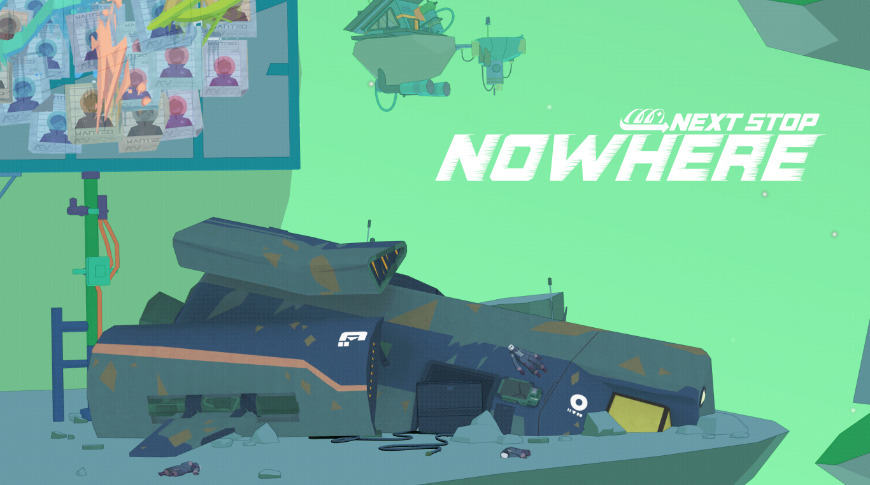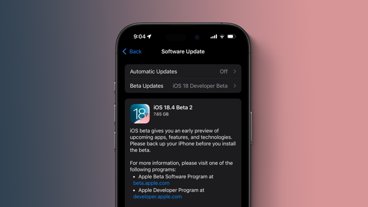A trio of developers that had their games recently appear on Apple Arcade have suggested how their games are a good fit for the subscription service, and their initial dealings with the company.
Since its launch, Apple Arcade has regularly made additions to its roster of games, with the list including quite a few titles from well-established developers. In interviews, the developers behind three games added to the service in August explained how being part of Apple Arcade changed development as well as hinting at why Apple elected to sign them up.
Jake Hollands, a developer of "Game of Thrones: Tale of Crows," told TechRadar the game was intended to be an indie title before publisher Devolver Digital talked to Apple. By being able to do without microtransactions, the game design changed to make it a more seamless experience, one without the typical advertising or prompts to buy in-game currencies.
"The core idea was to make it a 'healthy' indie game that takes this style of gameplay and uses it in a way that can fit the player's life, as opposed to trying to just keep them hooked constantly on the screen," said Hollands. Unlike said microtransaction-based games, this healthy view also led to the game having an ending, rather than leaving it run effectively forever.
Night School Studio's "Next Stop Nowhere," a follow-up to "Oxenfree," was apparently warmly received by Apple in its pitch, with the existence on iOS providing it a new audience. "I was fairly dubious that a premium game could still survive in this world," said co-founder Sean Krankel, suggesting that beyond reaching "art house gamer people" and fans of horror titles, "now on iOS we're reaching tweens who read creepypasta and a much broader audience."
Krankel also proposes the game the studio had been "kicking around" would be a good fit for Apple Arcade, "especially if we don't need to cram in monetization hooks that we frankly are not good at." Much like Hollands, Night Shift Studios also "semi-intentionally" made it feel like there's chapters, or natural places in gameplay for people to stop playing and move on to do something else.
This idea of making a game easy to digest as players switch between apps is something that's ever present throughout the Apple Arcade catalog, with no real pressure for players to keep playing a title longer than they wish.
Steven Burgess of Hello Games brought up a 2018 meeting with Apple, where it asked for titles that could be a good fit for Apple Arcade, a discussion that led to the creation of "The Last Campfire." According to Murray, Apple was looking for "creatively-led premium experiences native to the device."
As the studios in the interview were brought aboard Apple Arcade long before the official launch of the service, the group may not necessarily be a true reflection of the future Apple Arcade releases.
In June, a report claimed Apple was changing strategy to focus on titles with higher "engagement" levels, at the same time as scrapping contracts with studios for in-development titles that didn't meet the altered brief.
 Malcolm Owen
Malcolm Owen







-m.jpg)






 Charles Martin
Charles Martin


 William Gallagher
William Gallagher
 Christine McKee
Christine McKee
 Marko Zivkovic
Marko Zivkovic
 Mike Wuerthele
Mike Wuerthele








21 Comments
So this whole debacle is more about Epic trying to silo customers to an Epic ecosystem and not face competition from Arcade games where switching to another game is more seamless..,?
On what basis does a developer continue to receive revenue, when players finish the game and don't come back? Is this largely dependent on attracting new players? I'd like to hear more about this whole process, including any need for promotional advertising.
Apple Arcade has been an immense failure for developers. I have been in the industry for 15 years and friends in the industry with professional studios have lost a lot of money on Arcade.
Although IAPs really suck from a game design point of view (Apple raped the market by pushing for lower/free pricing structures causing developers to have to become masters in convincing people to do an in-app-purchase on a platform where their game is barely discoverable), it is the best option today. With a subscription model Apple tried to correct this and go back to ‘clean’ games without IAPs or ads, but in the end has no serious money available to award developers. Their earnings/pay-out structure is not transparent to developers. A game studio has no idea how the money is redistributed across content, including their title. It’s best guessing and hoping Apple gives them every penny that is contractually owed. Developers receive no rights to audit Apple.
Unfortunately this also lead to an overall poor offering on Arcade. Nobody I know actually likes what you can download for the money paid.
In order for Apple to be successful with Arcade, they will have to buy entire game studios and/or pay for tentpole productions. Go for the Sony/Microsoft approach. There should be a clear program for indies, with all the appropriate earning forecasts and offerings.
Apple rather spends money on getting Tom Hanks or Oprah on board, even though the gaming industry is much bigger.
Curious to see where their new strategy takes them.
@CheeseFreeze, Thanks for your take on your experience, but to be honest I'm surprised by your stated perceptions. Are game studios participating in AA paid per download or a flat amount per month for example?
I haven't had any dealings with respect to Apple Arcade, but I strongly recall Apples approach to iAds was pretty much the opposite of what you are saying about AA. With iAds, the payout to developers was tenfold the competing networks, so Apple effectively threw lots of money at iAds, and developers (like me) that took advantage reaped significant rewards. I feel that iAds was closed down likely due to them over-spending and over-investing, which is the opposite of what you are saying is happening with AA.
Further, my personal conversations with app-store staff, for example, did nothing but leave me with admiration for Apple's pursuit of excellence for its end-users.
I strongly suspect that the truth lies somewhere in the middle, and would be interested to know how much revenue a game studio can expect to receive for having a single game in AA. I imagine it's far more than some may think you are implying but likely far less than the opportunity available to the larger studios via the unsavory alternatives of ads or IAP. Personally I'd be happiest if Apple just banned all ads and IAP in games.